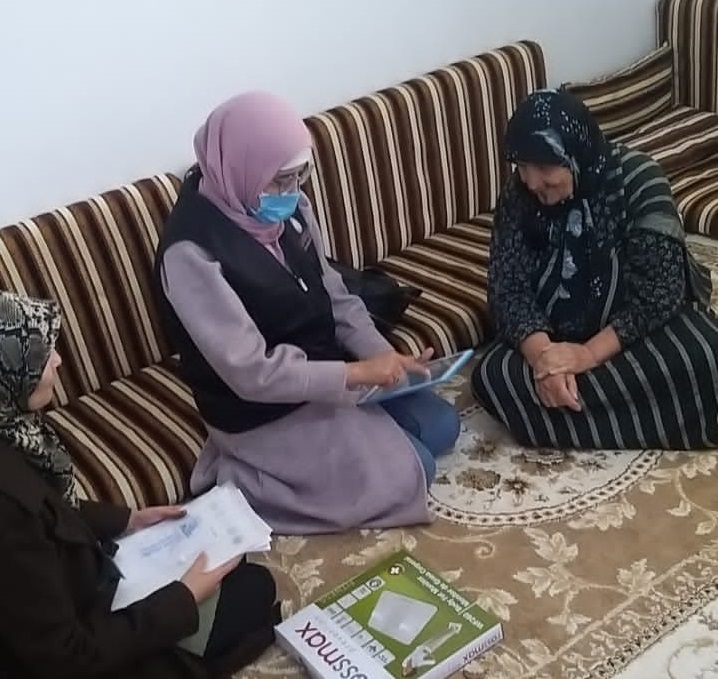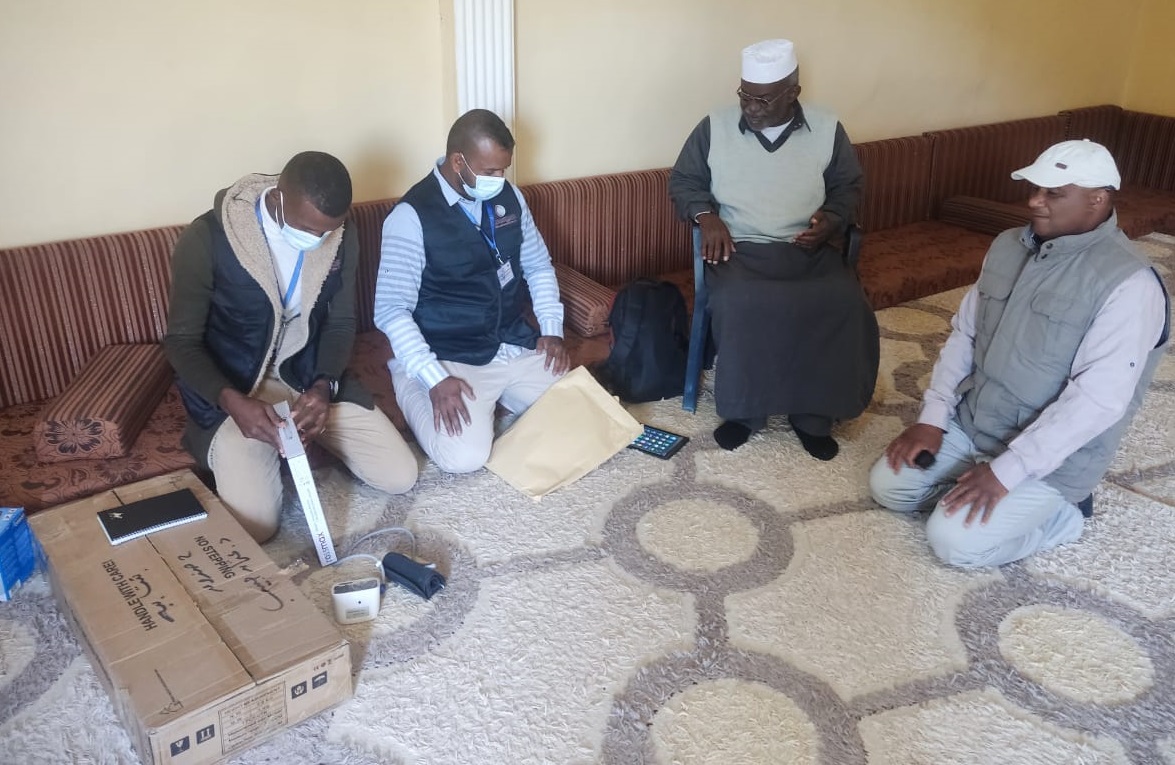 WHO-trained Ministry of Health staff engaging in the STEPs survey through household visits in Derna in eastern Libya Tripoli, 28 November – Libya’s National Centre for Disease Control has begun implementing a survey on the prevalence of noncommunicable diseases (NCDs), such as cardiovascular diseases, diabetes, cancers, chronic respiratory diseases and mental health conditions in the country.
WHO-trained Ministry of Health staff engaging in the STEPs survey through household visits in Derna in eastern Libya Tripoli, 28 November – Libya’s National Centre for Disease Control has begun implementing a survey on the prevalence of noncommunicable diseases (NCDs), such as cardiovascular diseases, diabetes, cancers, chronic respiratory diseases and mental health conditions in the country.
The standardized WHO survey, known as STEPS, focuses on obtaining core data on the risk factors such as tobacco use, unhealthy diet, physical inactivity and air pollution that determine the major burden of NCDs. To date, over 120 WHO Member States have implemented the STEPS survey. By using the same standardized questions and protocols, countries can use the information yielded under STEPS not only to monitor within-country trends but to make comparisons across countries.
 WHO-trained Ministry of Health staff engaging in the STEPs survey through household visits in Obari southern LibyaThe last national STEPS survey in Libya dates back to 2008. The updated survey is being implemented with technical support from WHO and financial support from the United States Department of State. WHO has trained 78 data collectors from 23 municipalities on the STEPS methodology. The National Centre for Disease Control will use the information to monitor NCD risk factors across the country, track risk factor trends, determine public health priorities and develop preventive strategies on the basis of new evidence and fresh data.
WHO-trained Ministry of Health staff engaging in the STEPs survey through household visits in Obari southern LibyaThe last national STEPS survey in Libya dates back to 2008. The updated survey is being implemented with technical support from WHO and financial support from the United States Department of State. WHO has trained 78 data collectors from 23 municipalities on the STEPS methodology. The National Centre for Disease Control will use the information to monitor NCD risk factors across the country, track risk factor trends, determine public health priorities and develop preventive strategies on the basis of new evidence and fresh data.
Ms Elizabeth Hoff, WHO Representative in Libya, observed that NCDs were the cause of almost 75% of deaths worldwide and that it was essential to understand the social, environmental, commercial and genetic drivers of NCDs in Libya. “The survey will yield invaluable data to help Libya meet today’s challenges and plan for those of tomorrow. WHO will continue to support Libya in its quest to prevent and control NCDs and build a healthier future for all.”








